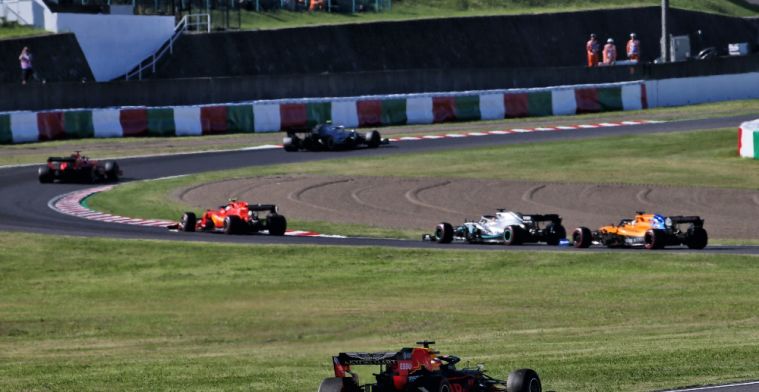Column

Reducing travel and C02 - Why the 2024 calendar changes make complete sense
In recent days news has leaked that Formula 1 could announce a major shift in the calendar for 2024 in order to cut down on C02 emissions and to accommodate Ramadan. The news has been met with a mixed reactions, but do the changes make sense?
At first glance a triple header of Australia, China and Japan looks pretty brutal on the drivers. We rarely see them on the calendar, and are only normally used in exceptional circumstances. However, this one might actually make sense. We are yet to have confirmation of the dates but we are assuming they are one weekend after another. With the season rumoured to be starting in Jeddah before going to Australia, China and then Japan, this actually makes some sense.
"There's obviously been a lot of talk about how sustainable the calendar is, jumping from the Middle East to America and back to Europe," Russell said at the FIA press conference Down Under.
"There are a lot of limitations with the climate; we race at certain events and limitations of street circuits, of when they can open them. But definitely I think Australia needs to be back-to-back with a Middle Eastern race, because I think almost all of us flew out here on a Saturday or Sunday last week."
Reducing travel
Travel wise it actually becomes significantly easier. The build up to Japan in 2023 sees the drivers cover 9510 from Milan Linate Airport (Italian GP) to Chubu International Airport ahead of the Japanese Grand Prix, with a stop off at the Singapore Changi Airport (Singapore GP). Compare that to 2024 which would see that almost halved to 5869 miles going from Melbourne Aiport to Shanghai Pudong Aiport and then onto the Chubu International Airport. Both legs of travelling are shorter than the current schedule.
View this post on Instagram
Reducing emissions
Formula 1 has long been criticised for not being the most environmentally friendly sport, but Stefano Domenicali has stated that the sport is trying to do more to reduce their carbon footprint. And unsurprisingly reducing the travel distance between each race significantly reduces C02 emissions. Under the current setup, flights between the three locations produce 932kg of C02 emissions. However, under the 2024 setup it becomes 723kg. A significant drop.
A logical change
So all of this seems to make sense, regardless of the situation imposed on F1. Less travel for drivers, teams and fans, making the sport more accesible which is key to the sport's sustained growth. Formula 1 wants to add more races to the calendar and fair play, the sport is a global one, and one for all, but lets not lose a bit of plain old common sense in the process.



















































